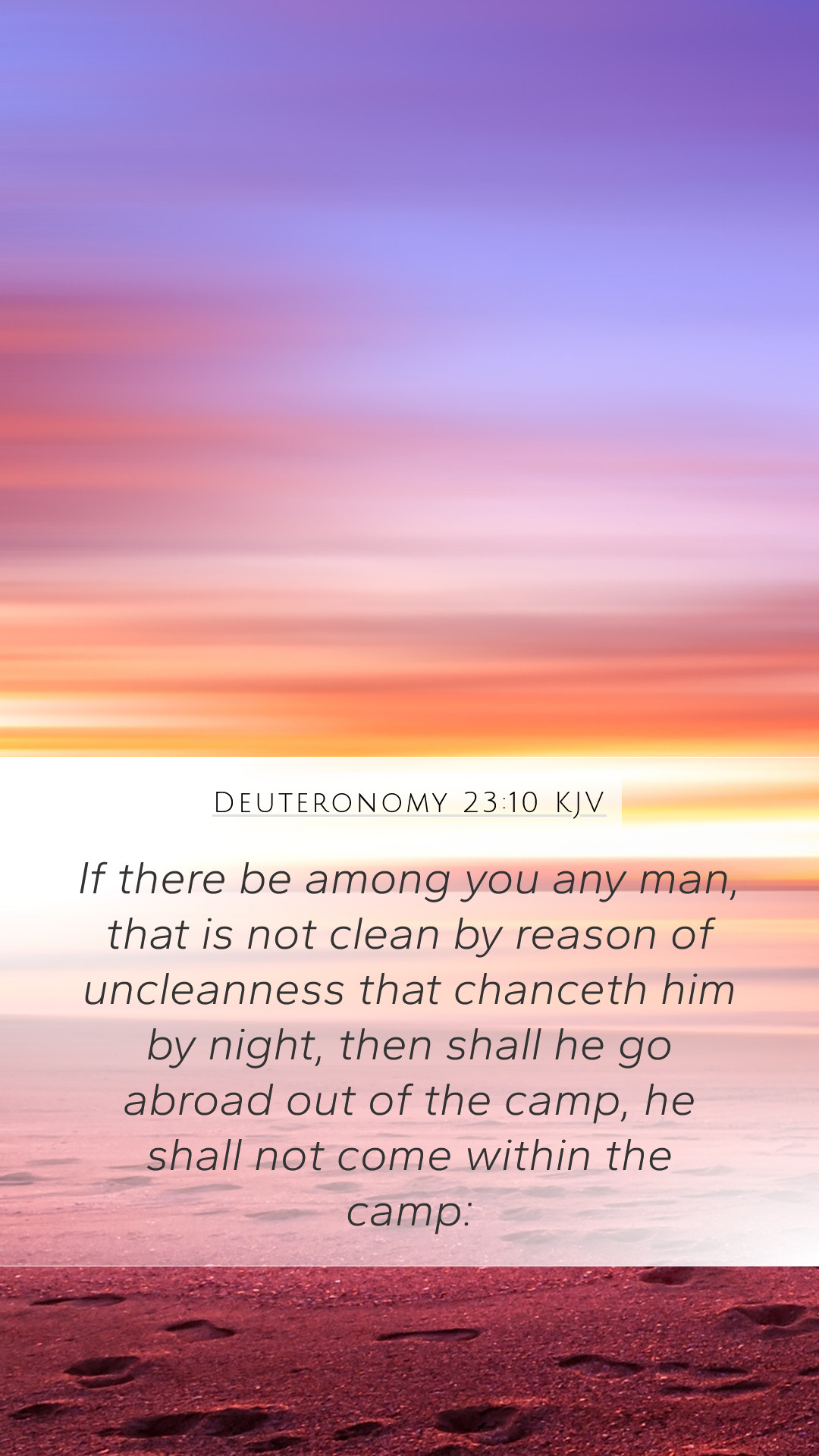Understanding Deuteronomy 23:10
The verse Deuteronomy 23:10 provides specific instructions regarding purity and organization within the camp of Israel. This analysis combines insights from several public domain commentaries, aiming to provide a comprehensive understanding of the verse.
Verse Text: "If there is among you any man that is not clean by reason of uncleanness that chanceth him by night, then shall he go abroad out of the camp; he shall not come within the camp:" (Deuteronomy 23:10, KJV)
Bible Verse Meaning
This verse speaks to the importance of communal purity, particularly in the context of the Israelite camp. The overarching theme is one of holiness and cleanliness in the presence of God, aligning with other instructions found throughout the Torah.
Insights from Commentary
-
Matthew Henry:
Henry emphasizes the necessity for Israel to maintain spiritual and ceremonial purity. He suggests that this command was crucial for maintaining the sanctity of the community, particularly since the camp represented the dwelling place of God among His people.
-
Albert Barnes:
Barnes interprets this verse as a preventative measure to safeguard the community from potential spiritual and physical contamination. He points out that any individual deemed unclean had to leave the camp until they could be restored, highlighting the seriousness of maintaining a holy environment.
-
Adam Clarke:
Clarke notes that this stipulation reflects a broader theme in the Law regarding the holiness of God and the need for a clean space. He discusses various types of uncleanness and the ritualistic aspects that required people to be excluded until they were purified through prescribed means.
Broader Context
Understanding this verse requires awareness of the wider Levitical laws governing purity. The mention of 'uncleanness' connects to various cultural and ceremonial practices established in Leviticus, such as those relating to sexual relations, skin diseases, and other bodily emissions. The concept of cleanliness was paramount in Israel’s identity as a chosen people.
Application of Biblical Principles
This scripture encourages modern readers to reflect on the principles of holiness in their spiritual lives. While contemporary application may not involve physical camps, the idea of spiritual purity remains vital within a community of believers.
Cross References
- Leviticus 15:1-33 - Laws concerning bodily discharges and uncleanness.
- Numbers 5:2-4 - The command to expel those who are unclean from the camp.
- Hebrews 12:14 - A call to pursue holiness and peace.
Conclusion
In summary, Deuteronomy 23:10 underscores the importance of cleanliness and holiness in a communal setting. By interpreting this verse through the lens of various commentaries, one gains a deeper understanding of its implications both historically and in contemporary life. For those interested in Bible study, this verse serves as a compelling topic for discussion, encouraging deeper exploration of holiness in personal and community contexts.
Important Themes:
- The necessity of purity among God's people.
- The significance of ritual and ceremonial cleanliness.
- Modern applications of Scriptural purity principles.
Overall, this scripture analysis of Deuteronomy 23:10 is an essential part of understanding the larger narrative of holiness in the Old Testament and draws parallels to today’s applications of living a pure and holy life.


